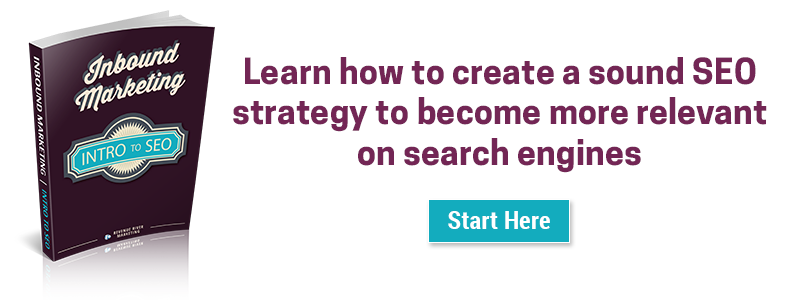

Shopify, Magento, Big-Commerce, Shopping Cart and other e-commerce website platforms have truly changed the individual buyer and seller market. However, because of the convenience and lower startup costs, the ecommerce digital competition is fierce; even if you have a superior product or amazing price-point, you might not get the sales volume you need. This fierce competition ultimately forced some of the most creative minds in the realm of ecommerce marketing to find proven best practice solutions to compete in the saturated ecommerce market.
What are these solutions? The meta term is simply called digital inbound marketing. I view these solutions as the active pursuit of creating a premium digital storefront. Basically, become an Apple store.
First You Need Inbound Digital Marketing As A Foundation
Let's assume for a minute that an ecommerce site has an amazing growth driven design and the sales platform is beautifully streamlined into a convenient user experience and interactions. Plus, you even have a high converting PPC campaign on AdWords with positive ROI but you simply cannot get the sales volume that you want. And, you are intelligent enough to get a solid content marketing team writing about your product and business, combined with a data-supported social media marketing campaign. This definitely helped, and you even consulted Sales Enablement teams clear up the funnel. In fact, all the blog content and navigation pages are fully optimized from a SEO perspective.
Simply doing the previously stated tools in your digital marketing campaigns already makes you a solid competitor on the market. You're doing everything right, but ecommerce SEO is a little bit different because there are so many additional variables that can be utilized to optimize your site. Basically, ecommerce sites have upper-hand when it comes to marketing
The biggest competitive advantage of an ecommerce site is relevancy potential and high volume production for your target topics or keywords.
Have you ever hit a road-block on blog topics? Not only are relevant topics hard to come up with after a while, it gets kind of boring writing about the same thing. However, you are a professional so you keep chugging along and find creative ways to keep your content alive and vibrant.
The thing is, even aggressive blog editorial calendars like a daily news site does not have a chance against an ecommerce website with a large inventory. This is why:
Sit back and think about why the heck you even write blog articles.
You write blogs to have more relevant and optimized content to present to search engine bots. Pure and simple. You follow Google best practices and produce. More posts with potential landing pages internally linked towards relevant content and keywords for your domain and pillar pages. As discussed earlier, however, there is a production capacity for blogs assuming you are creating high quality articles.
Outside of blog posts, most websites don't have many options to expand and optimize their content with keywords. You usually have your top navigation pages which generally consist of:
- Home
- About Us
- Contact
- Team
- Resources
- Blog
- Services
- Products
You might have some subcategory pages for your main pillar pages and perhaps even lower-level categories. Optimize those and guess what? You need to crush blog posts.
Ecommerce Sites Are Way Sexier
When you have a digital store-front, you have all the usual pages plus product category pages, sub-category pages, brand pages, and product pages. In fact, some ecommerce sites have even more page types. Ecommerce pages have tons of images where you can add unlimited amounts of pictures with optimized alt-text. Not to mention the potential rankings on each ecommerce page for page title, URL, meta description, H1 tags, and product or category descriptions optimized with your target keywords. You are looking at a goldmine of opportunity.
The beauty is that all of these pages also come with their own topics which makes writing and optimization so much easier! Combine all of these on-page optimization for keyword and pillar topics with a consistent blog editorial calendar to create amazing results. Even if you simply start with just meta tag optimization for your ecommerce pages plus an H1 tag, and skip the product description content, you are already going to start seeing crazy results.
Many businesses also add new products over-time which means that this growth can be expected to continue. There are also so seasonal sale category pages and products, clearance products, etc. I've even seen individual product pages get linked to product review, case study, and testimonial pages internally linked. That's another page for each product! One product can create 5+ pages that can rank for your target topics and keywords.
Yes, it is a lot of work but SEO isn't about easy, it's about creating opportunities to make your competition R.I.P. Just kidding, but seriously, if you take advantage of your ecommerce SEO, your competitors should prepare to get REKT like the Falcons (sorry Georgia).
In this highly globalized and competitive digital world you need to use all the tools and options that are at your disposal. There are some aspects of SEO that is weighted in search algorithms a little less impactful than others, however, the variables that are available on ecommerce sites are very valuable and can give you the gains that you want.
Now, go be awesome, you optimization nerds!

